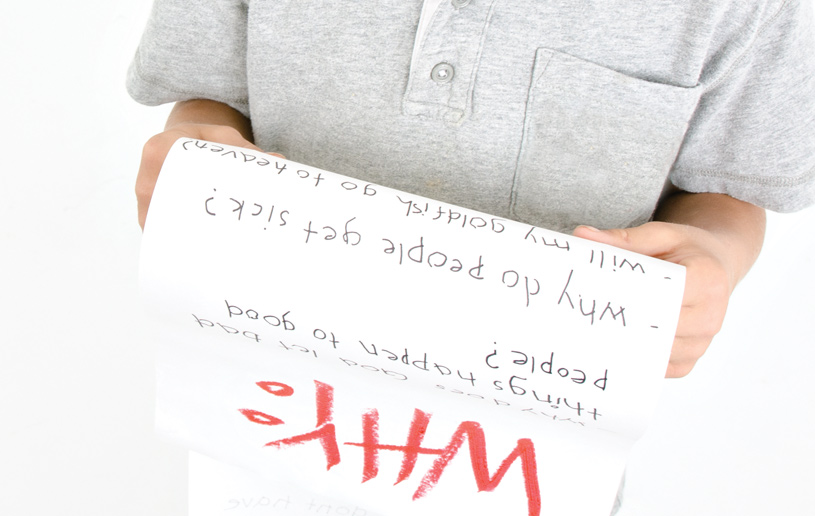
When images of American citizens filling the streets and cheering the death of Osama bin Laden began filling the airways this past spring, my children were perplexed. Why are people having a party because someone died?
asked my 12-year-old son.
Isn't it a sin to kill someone?
added my nine-year-old son.
Those were tough questions to answer. The 9-11 attacks on the World Trade Center and the Pentagon took place one month before the birth of my youngest son in 2001. At the time my daughter was four and my other son just two-and-a-half.
Because of these events, my children have never known a life without the constant—albeit it remote—threat of terrorism. For all of our noble intentions and efforts, my husband and I have been unable to pass on to our children the same kind of world of serenity and freedom—or at least the perceived freedom—from acts of terror, like the innocent world we grew up in.
The Christian life is full of tough questions arising from circumstances. Questions like Why does God allow bad things to happen to good people?
And if we parents struggle to answer them, how much more deeply must our children wrestle with those troublesome questions?
Some questions that our children ask are easy to answer. How can I go to heaven when I die?
is one of those straightforward ones that have a black and white answer. It's the ones like my boys asked that give me cause for panic. What if they get confused? What if they can't reconcile a God of love with One who is also holy and just and cannot ignore sin?
Over the years, though, I've come to realize it's important to be honest with our children when they ask those hard questions that don't have straightforward answers. When my son asked why it was OK that those soldiers killed Osama bin Laden, I had to admit I didn't know. Right now, I can only see circumstances as if looking into a mirror, rather than looking through a transparent window; I only know part of the answer, the part that's a cloudy reflection of myself in all my human limitations (1 Corinthians 13:12).
Often our kids view us as superhuman. Not being able to answer every question shows them we are only human, just like them. Even though it seems like it should do the opposite, letting them know that we are also vulnerable but that we put our faith in a sovereign heavenly Father to care for us, actually drives home those biblical lessons of trust.
My husband and I are fortunate that all three of our children made their own decisions to accept Christ at very young ages. Now, when events like 9-11 raise questions in the minds of my children that I can't explain, I realize that I need to trust my heavenly Father to parent my children, filling in those gaps of understanding that I am not capable of bridging myself. In fact, it's usually during those little crises of understanding that our kids truly begin to appreciate what trust is really all about and what it means to ...live by faith and not by sight
(2 Corinthians 5:7 NIV).
We don't need to know all the answers in order to lead lives of security. As Proverbs 3:5-6 says: Trust in the LORD with all your heart and lean not on your own understanding; in all your ways submit to him, and he will make your paths straight.
Instead, we need to surrender ourselves to the One who knows us and has every aspect of our lives mapped out for His own good (Jeremiah 29:11).
Neither do our kids need to know all the answers to develop a relationship in Christ. In fact, it's during those times of trials, those events too terrifying and perplexing to comprehend, the ones that cause them to ask the tough questions, that deepen and refine their faith so that it becomes strong enough to last for a lifetime (1 Peter 1:7). Long after Mom and Dad have exited the picture.

